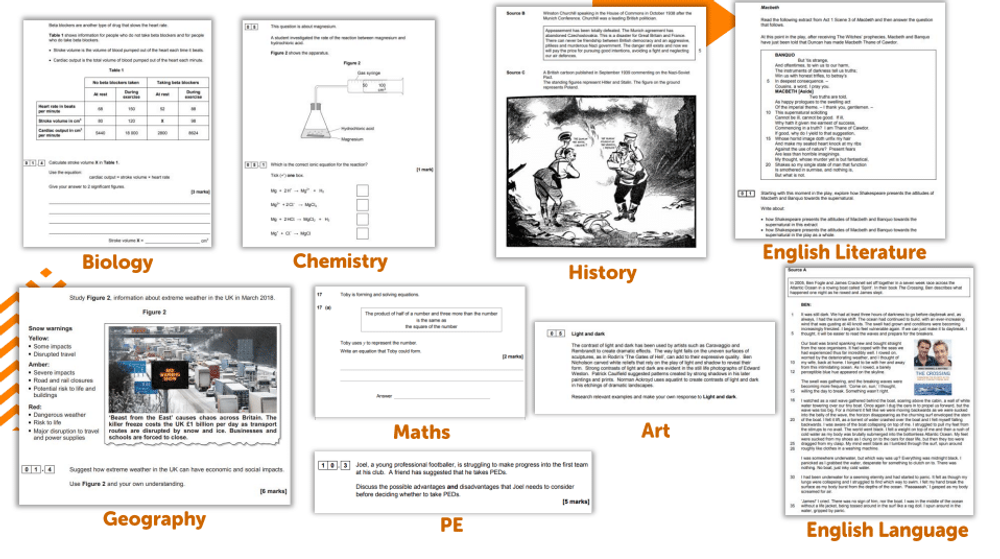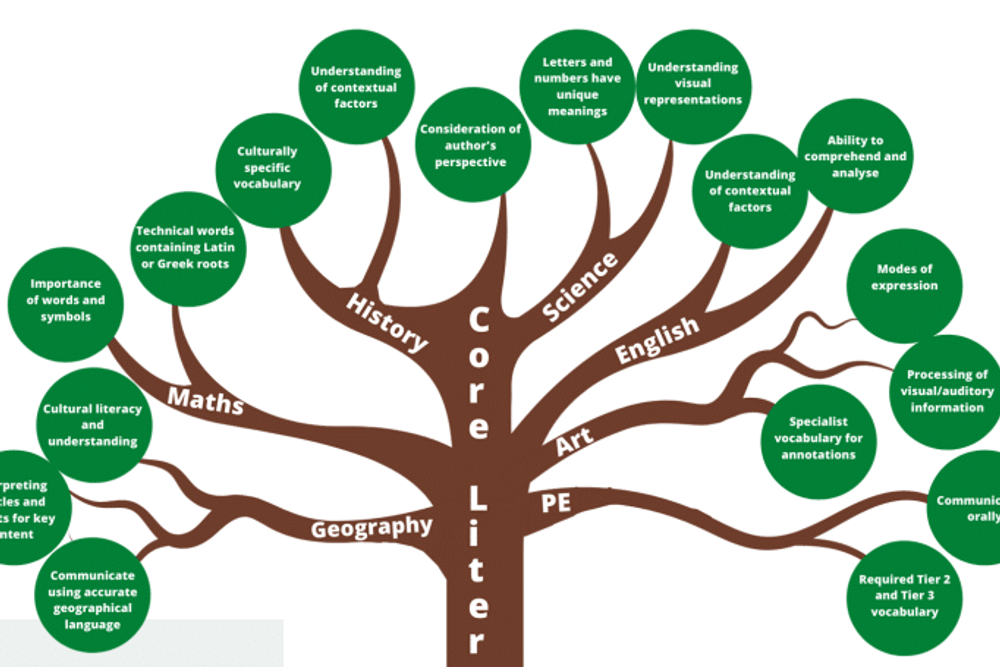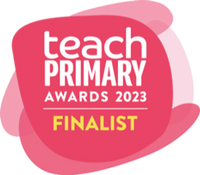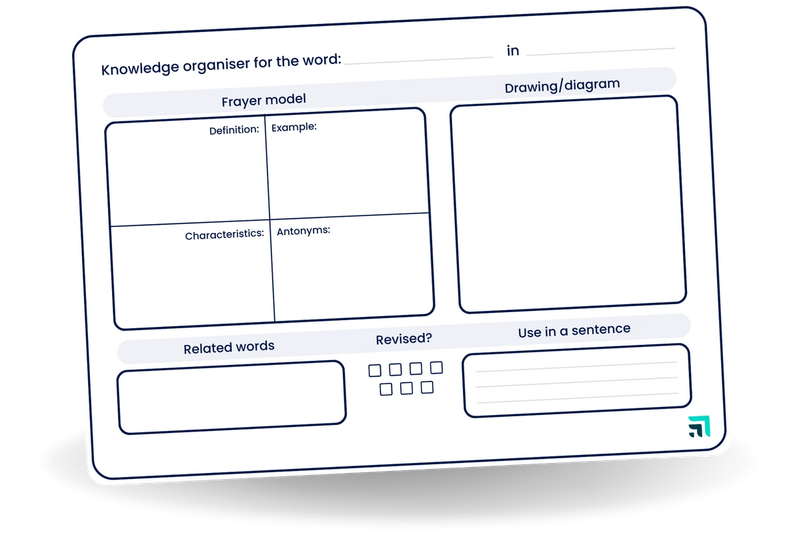What is disciplinary literacy?
Disciplinary literacy – also known as academic or subject-specific literacy – is a crucial consideration when approaching teaching subject-specific Tier 3 vocabulary, critical thinking, subject knowledge and skills within a discipline.
It enables learners to read, write, speak about, listen to and think conceptually and critically as experts in a certain subject.
In short, teaching disciplinary literacy is asking learners to “think, speak, read and write as a historian, scientist, or mathematician”, as Alex Quigley describes in Closing the Vocabulary Gap.
Examples of disciplinary literacy in every subject

The framework from which these examples extend is best explained by Kathrine Mortimore in Disciplinary Literacy and Explicit Vocabulary Teaching as the “disciplinary literacy tree” - the trunk represents universal knowledge, while the branches represent the knowledge of each subject.
This disciplinary literacy tree template, along with a free disciplinary literacy audit template, can be found on Miss Ashton's guest blog.

Teach disciplinary literacy with Bedrock
Encourage every learner to communicate like an expert in every subject across the curriculum.
Why is disciplinary literacy important?
Disciplinary literacy is fundamental to developing the strong literacy skills that are vital to success at school and beyond - “prioritise ‘disciplinary literacy’ across the curriculum” is the first recommendation in Improving Literacy in Secondary Schools, a guidance report from the Education Endowment Foundation. This report notes that literacy is “a strong predictor of outcomes in later life” and clarifies further:
"Literacy in secondary school …. must be grounded in the specifics of each subject. In particular, the report emphasises the importance of ‘disciplinary literacy’, an approach to improving literacy across the curriculum. It recognises that literacy skills are both general and subject specific, underlining the value of supporting teachers in every subject to teach learners how to read, write and communicate effectively in their subjects."
Shanahan and Shanahan state in their blog, Disciplinary Literacy: the Basics, that “content area reading aims to build better students,” and “disciplinary literacy tries to get [learners] to grasp the ways literacy is used to create, disseminate, and critique information in the various disciplines” - this has a significant impact on learners’ deep comprehension.
In order for learners to succeed in every subject, teachers have the responsibility of teaching them the subject-specific ways experts in different disciplines read, write, think and speak.
What are the benefits of disciplinary literacy?
Disciplinary literacy:
- provides learners with the specialist vocabulary to understand and communicate in specific-subject areas.
- helps learners develop critical thinking and expertise in each subject, supporting their meta-cognition.
When learners can understand and communicate using specialist vocabulary and concepts, they develop a confidence that leads to higher expectations of themselves. They may unlock a passion for a particular field of study and are empowered to direct their own learning. In turn, this means they can access and critique more complex thinking to further enhance their expertise.

Miss Ashton has collated examples of exam questions a learner might see in their GCSEs. When placed side by side, it’s easier to see the different ways a learner is required to think and write to succeed in exams.
Disciplinary literacy equips learners to face these exam questions with the subject-specific knowledge they need.
Ultimately, a disciplinary literacy approach enables learners to transfer their learning to the real world.

Improve disciplinary literacy at your school
Over 20,000 words and 100,000 vocabulary activities across the curriculum with Bedrock Mapper.
Commonly asked questions about disciplinary literacy
Disciplinary literacy in primary school: is it as relevant as in secondary school?
Yes! Despite most discussions focusing on the impact of disciplinary literacy at secondary level, it’s also beneficial when practiced in primary school. This is exacerbated by the knowledge that many primary school teachers teach multiple subjects, not just one.
Primary school teachers, when you're teaching numerators and denominators in maths, adverbs in literacy and condensation in science (all in one day!), you are using a disciplinary literacy approach, encouraging learners to think like experts in each discipline.
Can disciplinary literacy be applied to every subject?
Yes! As shown in the list above, learners need to understand and communicate in any academic subject using specialist language and concepts.
Crucially, learners will come across the same word in different disciplines. By addressing disciplinary literacy head-on, teachers explicitly teaching Tier 2 command words empower learners to comprehend what words such as ‘analyse’ or ‘factor’ mean across the curriculum, as applications vary by subject.
- Disciplinary literacy in maths
- Disciplinary literacy in science
How can I implement disciplinary literacy in my school?
The EEF acknowledges that ‘historically, many secondary school teachers have not seen themselves as literacy experts’. To embed a consistent whole-school disciplinary literacy approach successfully, teachers across the curriculum need to know what literacy means in their subject area, and encourage conversations within departments. This is where the headteacher or head of literacy at your school can help, by engaging teachers with disciplinary literacy and making the benefit to learners’ knowledge and skills clear.
Adopting disciplinary literacy practice doesn’t demand extra time from teachers. A subtle adjustment to lesson practice can be transformative to learners' understanding, engagement and outcomes - and Bedrock Mapper's Tier 3 vocabulary curriculum makes this process even faster.
Top five to take away
- Disciplinary literacy has been shown by researchers such as Alex Quigley, Shanahan and Shanahan and the Education Endowment Foundation to be crucial for equipping learners to identify specific reading and writing strategies for different subject areas.
- Disciplinary literacy can be seen as a “tree”, with the trunk representing universal knowledge and the branches representing subject-specific knowledge. Consider the branches that you need to focus on in each subject.
- While explicitly teaching Tier 3 subject-specific vocabulary is important for learners’ comprehension, you shouldn’t neglect the subject-specific definitions and contexts of Tier 2 vocabulary.
- The exam questions learners face in their GCSEs require vastly differing reading skills and methodologies - it is equally important that learners understand what is being asked of them through reading techniques and Tier 2 and Tier 3 vocabulary used across the curriculum for them to succeed in their exams, and in their whole lives.
- It's becoming increasingly important for teachers to receive the support and literacy CPD to view themselves as experts, not just in their subject but in literacy also. Additional training, such as webinars, can help with this - as well as Bedrock Mapper, our Tier 3 vocabulary solution, which provides teachers with a time-saving, consistent method for improving disciplinary literacy.





